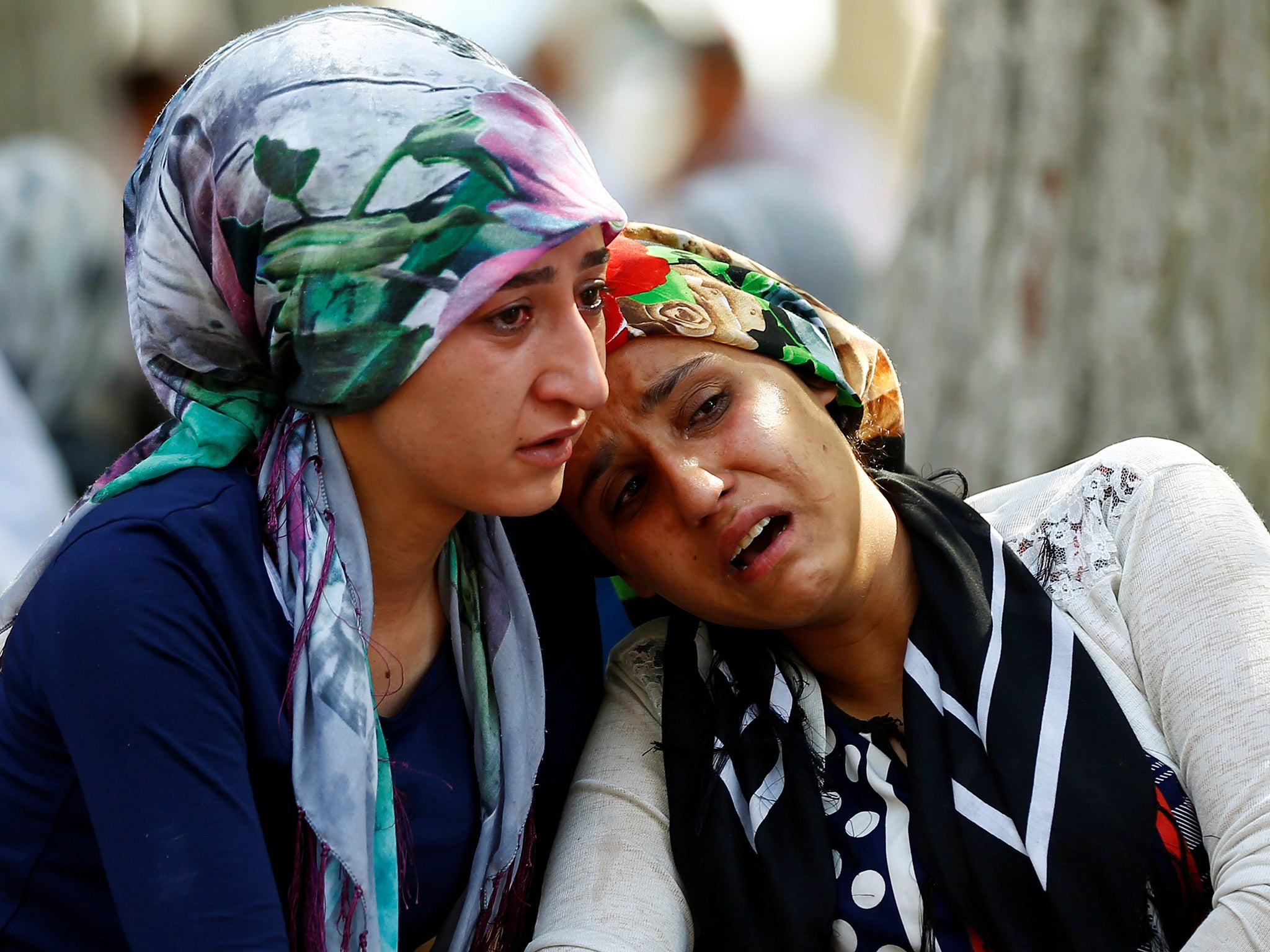Syrian civil war: Turkish special forces enter Syria to push Isis back from border after night of air strikes and shelling
Politicians vowed to 'cleanse' the border of Isis militants after a suicide bombing at a wedding

Your support helps us to tell the story
From reproductive rights to climate change to Big Tech, The Independent is on the ground when the story is developing. Whether it's investigating the financials of Elon Musk's pro-Trump PAC or producing our latest documentary, 'The A Word', which shines a light on the American women fighting for reproductive rights, we know how important it is to parse out the facts from the messaging.
At such a critical moment in US history, we need reporters on the ground. Your donation allows us to keep sending journalists to speak to both sides of the story.
The Independent is trusted by Americans across the entire political spectrum. And unlike many other quality news outlets, we choose not to lock Americans out of our reporting and analysis with paywalls. We believe quality journalism should be available to everyone, paid for by those who can afford it.
Your support makes all the difference.Turkish special forces have crossed into Syria after a night of air strikes and shelling targeting an Isis stronghold near the border.
More than 220 rounds rained down on Jarablus and the surrounding area overnight as tanks moved to the border and rocket launchers were put in position.
The wave of bombardment started firing at around 3am local time (1am BST) as Turkish jets and planes from the US-led coalition singled out targets with air strikes.
Footage showed endless rounds of artillery rounds streaking across the border, with huge explosions lighting up the night sky.
Security forces ordered the evacuation of the Turkish border town of Karkamis for the operation, after at least nine mortar shells fired by Isis landed in the area on Tuesday.
White and grey plumes of smoke rose from the hills of Jarablus on Wednesday morning as the boom of artillery fire from Turkish tanks could still be heard.
It was the first time Turkey’s air force has struck Syria since November, when it downed a Russian jet near the border, amid tensions over the US-led coalition’s support for Kurdish groups it regards as terrorists.
The offensive came after Isis was blamed for a suicide bombing that killed more than 50 people in the Turkish city of Gaziantep as they celebrated a wedding on Saturday.
The attack was the latest in a string of atrocities blamed on Isis in the country, which has also been targeted by Kurdish separatist groups in recent months.

Turkish military sources told Reuters Turkish special forces entered Syria while the bombardment continued, with an incursion by ground forces possible to "ensure border security and Syria's national integrity".
“The Turkish Armed Forces and the International Coalition Air Forces have launched a military operation aimed at clearing the district of Jarablus of the province of Aleppo from the terrorist organisation Daesh [Isis],” said a statement from the Turkish prime minister's office.
Turkish special forces previously moved into Syria in February last year in a brief operation to relocate the tomb of Suleyman Shah, a revered Ottoman figure, but the country has been criticised for its contribution to the Isis coalition so far.
On Monday, foreign minister, Mevlüt Çavuşoğlu, vowed to “completely cleanse” the terrorist group from border regions as shock over the wedding bombing reverberated around the world.
Operations hope to cut off Isis supply lines and smuggling channels for its lucrative trade in oil and looted artefacts, as well as the routes used by foreign fighters to enter the so-called Islamic State.
The Syrian Democratic Forces (SDF), a predominantly Kurdish rebel alliance backed by the US-led coalition, has driven Isis out from swathes of northern Syria in recent months including the city of Manbij.
SDF fighters have already advanced within a mile of Jarablus to the opposite bank of the Euphrates River, where they are believed to be preparing for a ground operation.
A force of 1,500 Turkish-backed Syrian rebels is also reported to be on standby to take part in the Jarablus operation.
Turkey has been concerned over the SDF's success, with Kurdish groups including the People’s Protection Units (YPG) in control of land stretching almost the entire length of the Syrian border.
Regarded as valuable allies of the US-led coalition, President Recep Tayyip Erdogan has called the fighters “terrorists” and linked them with the separatist PKK group, which is fighting an insurgency in south-eastern Turkey.
The country remains in turmoil following a failed military coup last month and allies have raised fears that the armed forces have been weakened by huge purges and restructures.
Anger over a perceived lack of support for the government, and international human rights concerns, has seen Mr Erdogan cool ties with the US and EU, choosing to end a diplomatic stand-off with Russia to move towards closer co-operation.
Russia is supporting Bashar al-Assad in the Syrian civil war and the prospect of a military coalition with Turkey is a cause for alarm for Western countries calling for the President’s removal.
The American Vice President, Joe Biden, was due to arrive in Turkey later on Wednesday for talks.
Join our commenting forum
Join thought-provoking conversations, follow other Independent readers and see their replies
Comments